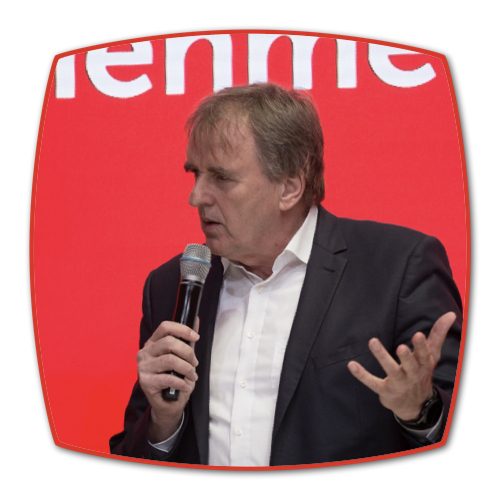
KI Future Tech Summit: What artificial intelligence can already do today
Perspectives and best practices from companies and politics
What significance does artificial intelligence have for Germany’s competitiveness as a digital location? How must regulatory frameworks be designed so as not to slow down innovation, but rather to focus on opportunities? Which flagship projects and AI pioneers in the German corporate landscape can serve as a blueprint to enable more companies to use artificial intelligence?
These questions were discussed by eco – Association of the Internet Industry at the German-language “KI Future Tech Summit” on 11 June 2024 at the Microsoft Atrium in Berlin. The summit also marked the conclusion of the KI Future Tech project, jointly initiated by eco and Microsoft Germany. The project aimed to showcase concrete best-practice examples from renowned German companies such as Boehringer Ingelheim, Bosch, Otto Group and Siemens, illustrating how AI is already being used in business and industry in Germany today — thereby making AI solutions and opportunities tangible and experiential.
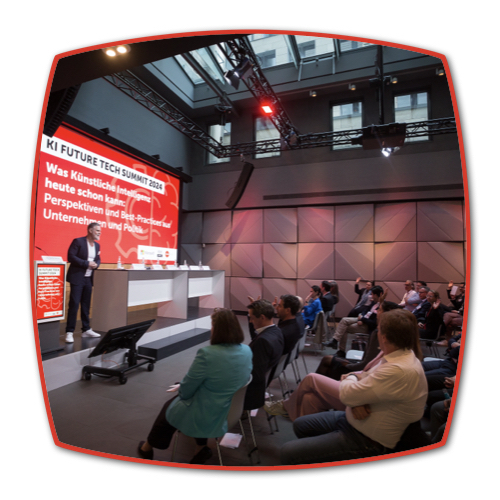
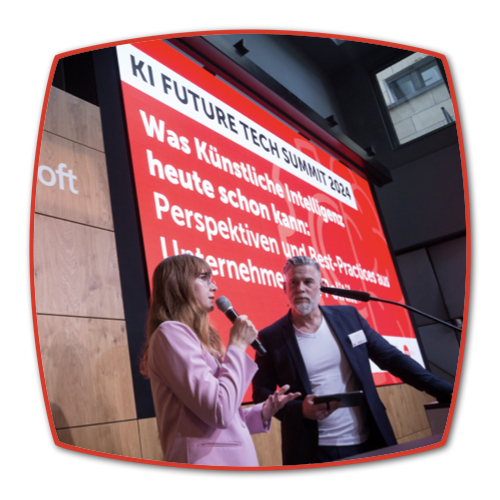
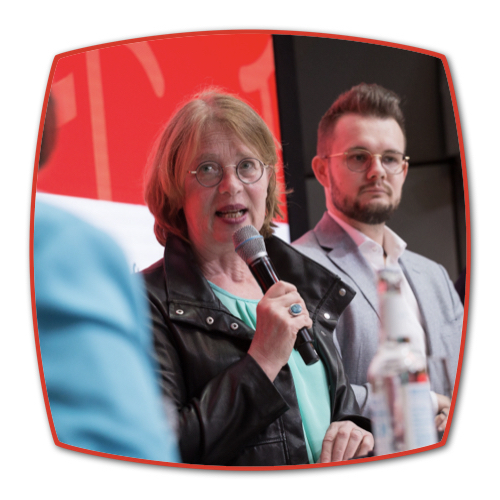
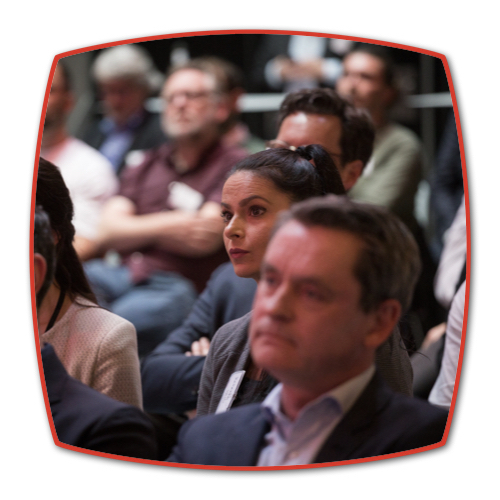
The event focused on the opportunities and potential of artificial intelligence for Germany as a digital location, as well as current political and regulatory issues. “The potential of artificial intelligence and its effects on efficiency, productivity and innovation are enormous,” said Wolfgang Dierker, General Manager Corporate, External & Legal Affairs at Microsoft Germany, in his welcoming keynote speech. “Our successful customer projects in artificial intelligence show how quickly industrial companies, for example, can make human-machine collaboration more productive through generative AI.”
The first panel was moderated by digital expert Sven Oswald. Participants included Ana Dujic (German Federal Ministry of Labour and Social Affairs Think Tank), Nico Hartmann (Manufacturing Industry Lead, Microsoft Germany GmbH), Dr. Michael Müller-Wünsch (Executive Vice President Technology, Otto Group), Johanna Michelfelder (Head of Product Area Video Perception, Bosch), Andreas Henrich (Head of IT Infrastructure, Boehringer Ingelheim) and Thomas Rettenmaier (Siemens). Together, they discussed the challenges and lessons learned in introducing AI solutions within companies, as well as future prospects and how AI could transform the working world.
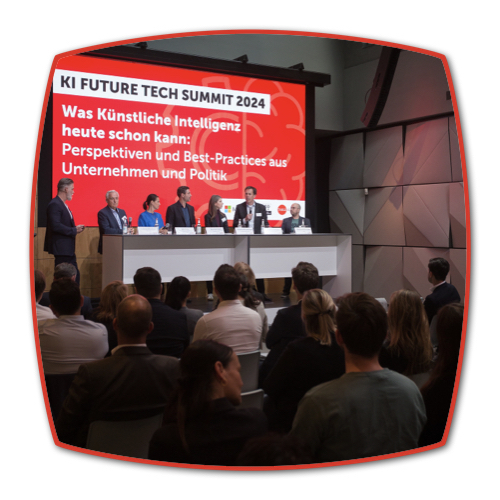
In the subsequent political speed talk, Corinna Visser (Table.Briefings) spoke with Members of the German Bundestag Maximilian Funke-Kaiser (FDP) Tabea Rößner, Alliance 90/The Greens), Parsa Marvi (SPD), Thomas Heilmann (CDU/CSU), as well as eco Board Member for IT Security Norbert Pohlmann, about prospects for AI regulation at the federal and EU level. The focus here was, among other things, on the upcoming national implementation of the European AI Act.
“In order to leverage the potential and innovative power of AI for the entire German economy, we need legal certainty and a uniform regulatory framework across Europe, as well as a high-performance ecosystem of digital infrastructures. We must spread the knowledge, possibilities and potential of AI. Business, science and politics must work together to make AI a basic technology in all industries and economic sectors if Germany is to remain competitive as a digital location,” summarised Sidonie Krug, Head of Association Communications and Spokesperson for Political Communications at the eco Association.
To the Flickr photo album
To the project page KI Future Tech (in German)
